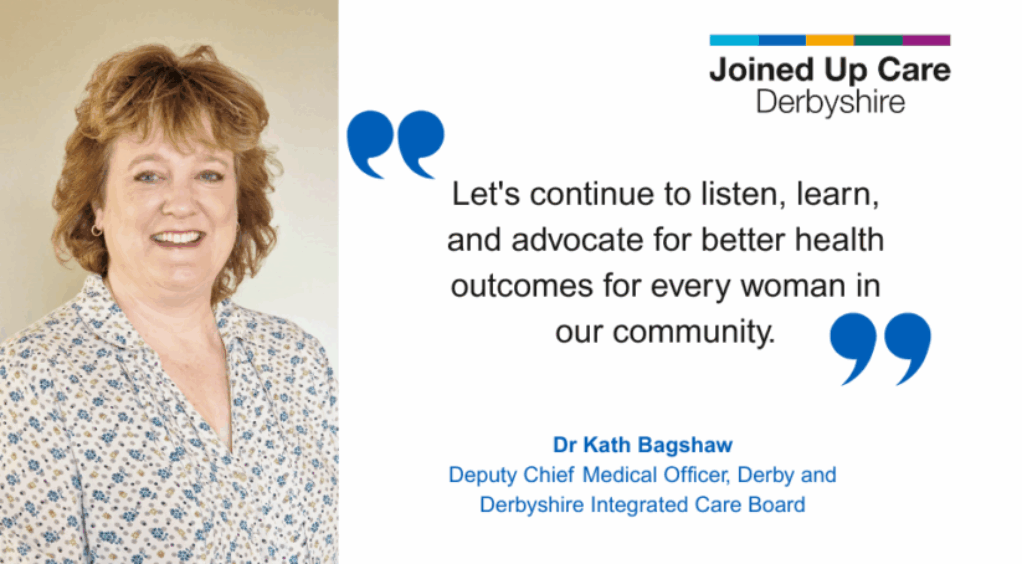Blog: Reflections from the women’s health engagement report
Last year, Joined Up Care Derbyshire embarked on a project to improve women’s health services in Derby and Derbyshire.
Women face unique health challenges, and women’s healthcare experiences vary for many reasons.
We knew we had an opportunity to connect with our communities across Derby and Derbyshire to really understand why certain groups of women face more challenges accessing healthcare.
Local engagement brought together service users, community groups, and healthcare professionals, highlighting the need for inclusive, co-produced approaches to reduce health inequalities and improve outcomes.
All of this information was collated in to an engagement report.
As I read through the engagement report, I couldn’t help but feel a deep sense of connection to the stories and experiences shared by the women of Derby and Derbyshire.
Their voices echoed the concerns and hopes of women everywhere, reminding me of the universal need for compassionate and accessible healthcare.
My work as a GP at Littlewick Medical Centre also plays a crucial role in this work. I understand that women have specific healthcare needs and practices play a role in delivering these key services.
The report offers a comprehensive look into the health needs and experiences of women across the region.
This report, based on extensive community engagement, highlights several key themes that are crucial for improving women’s health services and outcomes.
Some of the themes included:
- Understanding and knowledge of women’s health issues
- Barriers to accessing women’s health services
- Screening and vaccination participation
- Health priorities
The report builds on a clear need for women’s health in Derby and Derbyshire to change, shaped by early engagement with local women and communities.
Between November 2024 and January 2025, large-scale engagement activities, including online surveys and community workshops, gathered women’s perspectives on healthcare services.
A total of 1730 individual responses were received, with 744 participating in the survey and 986 attending community-led workshops from 39 community groups.
Progress has been made since, including the launch of tailored women’s health programmes and the recruitment of Women’s Health Ambassadors and Champions.
The report’s findings will further inform local planning and priorities for women’s health, guiding service improvements and future engagement work.
As clinical lead for the women’s health project at the Integrated Care Board, it is important to me that the recommendations for improving access to information, expanding community-based care, and developing targeted outreach campaigns are steps in the right direction and are actively followed through.
Overall, the Women’s Health Engagement Report is not just a document; it is a testament to the resilience and strength of women in Derby and Derbyshire.
It is a call to action for all of us to work together to create a healthcare system that is inclusive, compassionate, and responsive to the needs of all women.
Let’s continue to listen, learn, and advocate for better health outcomes for every woman in our community.
Read the report here: Improving Women’s Health Services

